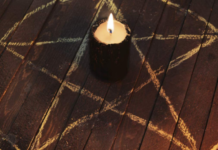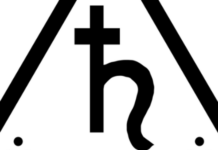Ethics: it can be a tinderbox subject in any situation, but within the spheres of witchcraft and Paganism, there always seems to be drama. From corporate appropriation, such as sexual misconduct under the guise of spirituality or religion, to the controversy over the the Sephora Witch Kits, the topic of ethics runs deeply through the magical community, and it needs to be addressed.
Ethics and abuse
Within any religion, there are reports of abuse, and Paganism is no different. It is not that religious or spiritual traditions have something inherently wrong with them; rather, those in positions of power hold the trust of those who might look up to them This often attracts people who might abuse such a position. It always has.
The latest allegations of sexual abuse going unaddressed in the Pagan community come from well-known witchy writer Sarah Anne Lawless. Inspired by the ongoing #metoo movement, she bravely shared her experiences and encouraged others to do the same, and to demand accountability.1 Not all abuse is sexual, but can include situations wherein someone uses their influence and lineage to harass or bully others. It can be insidious and hard to identify clearly, which is why it’s such a touchy subject.
Related: Mental health and magical practice: Learning to know thyself,
by Chrysanthemum White Alder
Related: Trauma-informed meditation: Processing the past, by Chrysanthemum White Alder
Related: Pomegranates and trauma: Delving into the Underworld, by Xenia
Related: Dancing with the Shadow: An introduction to shadow work, by Dallas Jennifer Cobb
So, how should we as a community, and as individual groups, covens, and practitioners, address the issue of abuse within Paganism? Especially when there tends to be an air of closing ranks when claims arise?
In a recent discussion on the Internet, I put forth my belief that when claims of abuse are made, we owe it to all parties involved to investigate thoroughly and without bias. When a claim of abuse is proven to be true, we must eject the abusers from our communities, and not harbour them. Whilst the other person agreed, they felt that perhaps the reason it is often swept under the rug is because in general, Pagans, witches, and occultists already face a lot of prejudice and discrimination for our beliefs, and they could understand not wanting to not attract any further negative attention. In my opinion, this only detracts from our practices, and even taints them. When claims and reports of abuse are raised, they cannot be ignored out of fear of perception, because that in itself becomes a self-fulfilling prophecy.
In addition to the questions raised above, there is also a need to safeguard children and particularly vulnerable adults. As well, there are issues that might arise out of a particular tradition’s practice, or issues surrounding “adult” practices (not necessarily sex, though certainly including it) within ritual. In certain traditions, there are issues that might arise regarding who can or cannot be initiated. For example, there are some women’s mystery traditions that will discriminate against trans women, or other groups that will exclude on the grounds of race. The topic of animal sacrifice certainly falls under the heading of ethics, especially nowadays when animal welfare and the eating of meat are points of contention even within mainstream society. There are so many more issues beside these, that it’s easy to see why so many turn away from discussing ethics, despite their huge importance.

Consumerism and capitalism
Returning to the Sephora Witch Kit mentioned above, a high-end cosmetic company decided to sell so-called “witch kits” — a box of witchy items including a crystal, tarot cards, essential oils, and sage. There was a huge outcry from the witch and Pagan communities. Many were infuriated that a company was going to profit from witchcraft, and that they were going to appropriate our crafts. In the end, the kits did not make it to market.
So, what about the ethics in this case? For me, whilst I understand the fury of others, it seems somewhat disproportionate in this one instance, as many companies not actually involved in the craft already turn a profit from witchcraft.
Ideally, there would be more Pagan or occultists providing the supplies we use, producing and creating them in accordance with our own code of ethics. As a counterpoint to the outcry against the Sephora kits, one could easily argue that perhaps they would have reached those for whom, for whatever reason, supplies such as this would not be readily available.
Related: Witching on a budget: Magick on the cheap, by Donyae Coles
Related: How to craft a wand, by Jarred Triskelion
Related: Creating your altar: A beginner’s guide, by Donyae Coles
Related: Domestic magick: The lost art of homemaking, by Chrysanthemum White Alder

Ethics and practice
Have you ever heard the saying that if you ask 100 different Pagans what Paganism is, you’ll get 100 different answers? Well, it’s true! And the same can be said of the ethics in this sphere.
Ethics even extends to the more personal aspects of our crafts and indeed some religions. For example, Wiccans have their own ethical codes. The Wiccan Rede, “An’ ye harm none, do what ye will,” as well as the Threefold Law, are some of its most quoted tenets.
Others who may not be Wiccan may have their own moral and ethical codes regarding what they are comfortable practising. Some will be ok with the darker aspect, whilst others will want nothing to do with it. At the most extreme ends, you get what are commonly called “fluffy bunnies,” a term used to refer to someone stays on the nice, fluffy side of witchcraft and magick, whilst at the other end are those who throw curses out like sweets at a parade. Very few people fall into these extremes in real life, because in real life, things are so very rarely so clear cut.
Related: The Rede: Not all witches, by Donyae Coles
Related: Magical correspondences and social values, by Brendan Myers
Related: Ethics: More than just right and wrong, by Punkerslut
It seems that most people with whom I discuss the subject with tend to walk a middle line. For instance, I was chatting with a friend about cursing, and they said they would never do it. But when I pushed further, asking, “What about in the most extreme cases, if someone hurt your family and escaped justice?” Of course, then the answer changed. Again, everyone has to decide what they are comfortable with.
For some people, it may be the fear of the unknown, or even a genuine feeling of not needing to retaliate or interfere. Another friend once told me that she’d been through enough bad times in her life to know how bad that feels and she wouldn’t wish the same on another person.
There is a beauty to these discussions, when they can be kept civil and cool. They can and do often become heated, in part because they often happen over social media, and with such short posts and with no face to face interaction, it’s easy for people to take things the wrong way and take offence. But these discussions are much needed, especially if we are to tackle the more serious issues — like abuse within our community — full on.
Photo credit: Kathryn, Bill Collison, and Angelina Earley
- Sarah Anne Lawless, “So Long and Thanks for All the Abuse: A History of Sexual Trauma in the Pagan Community,” Blog, 28 September 2018. [↩]









